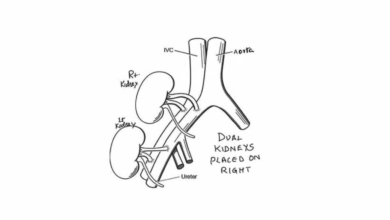Gene Therapy can reduce pain from spinal cord injuries: Study
Hyderabad: A team of researchers from University of California, San Diego, in a study on mice have demonstrated that gene therapy can reduce pain resulting from spinal cord injuries or other nerve injuries, without side effects.
The study on mice by University of California researchers, which was published online in Molecular Therapy on May 5, 2022, could pave the way for new modalities of treatment for scores of patients who suffer from chronic pain, numbness, tingling or loss of sensation in hands, fingers and feet due to spinal cord injuries.
At present, there are not many proven treatment techniques for nerve damage. “Effective treatment of spinal cord or peripheral nerve injury (PNI)-induced neuropathic pain remains a significant clinical challenge. There is no universally effective therapy available at present for neuropathic pain. The use of opioids, which are partially effective for neuropathic pain, can lead to the development of tolerance and potentially to drug misuse or abuse,” the researchers in the study paper said.
For the research, the researchers injected a gene-modifying virus into mice which were experiencing neuropathic pain as a result of damage to the sciatic nerve, a large nerve at the base of the spine that’s often associated with back pain in humans. The virus contained two naturally occurring genes, called GAD65 and VGAT, which can produce gamma-aminobutyric acid (GABA). The GABA chemical has the ability to inhibit the pain-signalling neurons in the mice.
“Treated animals showed a progressive and complete reversal of neuropathic pain that persisted for a minimum of 2.5 months post-treatment. No detectable side effects like sedation, motor weakness, loss of normal sensation were seen between 2 and 13 months post-treatment in naive adult mice, pigs, and non-human primates. The use of this treatment approach may represent a potent and safe treatment modality in patients suffering from spinal cord or peripheral nerve injury-induced neuropathic pain,” the researchers observed.
More research has to be taken-up in the near future to demonstrate the promise of gene therapy and translate its success achieved in mice to humans. “The data in this treatment demonstrate that it is highly effective in reversing responses in the mouse neuropathic pain model. The timing of measurable treatment effect corresponds with the therapeutic gene expression mediated by AAV9 or Anc80 delivery. Reversal of neuropathic pain is associated with the relief of peripheral hind paw digit contractures otherwise seen in non-treated animals,” the study said.








